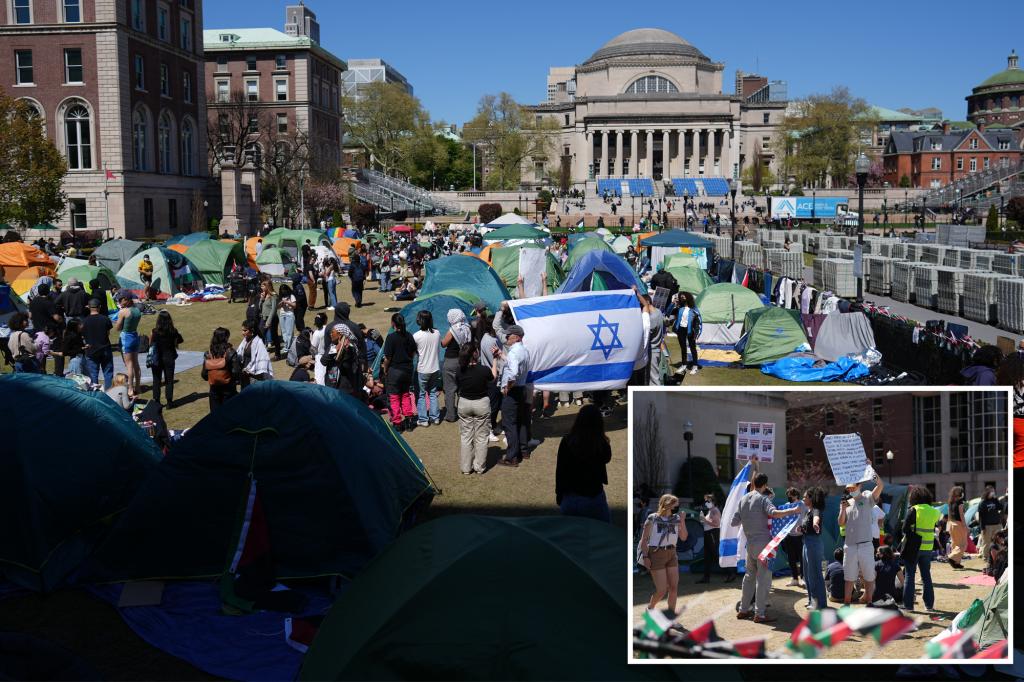Columbia University’s Vice Chancellor Minouche Shafik issued a warning on Tuesday, giving anti-Israel student protestors until midnight to reach an agreement to dismantle their encampment on campus. Shafik stated that discussions had been ongoing between student organizers, faculty, and administrators to find a way to disband the tent city that had already been cleared out once before since it first appeared last week. She emphasized the need for compliance with university policies and the importance of restoring calm to campus so that students can finish the term and graduate.
Shafik expressed her hope that the ongoing talks would be successful in reaching an agreement before the midnight deadline. However, she warned that if an agreement was not reached, the university would have to consider alternate options to clear the West Lawn where the encampment was situated. The decision to issue this warning came after Shafik had already canceled in-person classes, citing the need for a reset amidst the escalating demonstrations that had been ongoing for six days. The focus was on facilitating a peaceful resolution to the situation and ensuring that students could continue their studies without disruption.
The threats made by Shafik regarding the dismantling of the tent city on the Columbia University campus came following discussions and negotiations between student protestors, faculty members, administrators, and University Senators. The goal was to come to an agreement on how to disperse the encampment and ensure that everyone involved followed the university’s policies moving forward. The situation had reached a critical point where action needed to be taken to restore calm and order to the campus environment, allowing students to focus on their academic responsibilities and complete the term successfully.
The deadline given by Shafik for reaching an agreement highlighted the urgency of the situation and the need for a swift resolution to the ongoing protests. As tensions continued to rise and disruptions persisted, the administration felt compelled to intervene and address the encampment on the West Lawn promptly. The decision to set a deadline for reaching an agreement underscored the seriousness of the situation and the need to take decisive action to ensure that the campus environment remained conducive to academic pursuits and student activities.
The potential for alternative options to clear out the tent city signaled the administration’s determination to address the situation decisively if an agreement could not be reached by the deadline. Shafik’s warning was meant to convey the administration’s commitment to upholding the university’s policies and ensuring the safety and well-being of all students, faculty, and staff members. The administration’s focus was on resolving the situation peacefully while also maintaining order on campus and enabling students to continue their academic endeavors without disruption.
In conclusion, the ultimatum issued by Shafik to the anti-Israel student protestors at Columbia University underscored the administration’s commitment to resolving the situation and restoring calm to the campus environment. The ongoing discussions and negotiations aimed to find a peaceful resolution to the encampment issue and ensure that all parties involved followed the university’s policies. The decision to set a deadline for reaching an agreement and consider alternate options if necessary demonstrated the administration’s resolve to address the situation promptly and ensure that the campus remained a safe and conducive place for academic pursuits.















